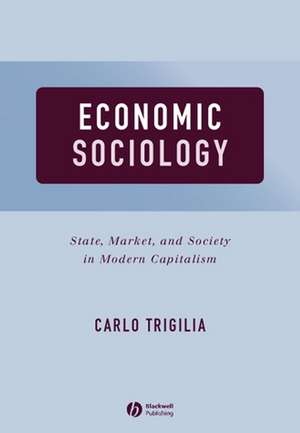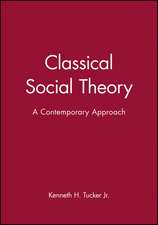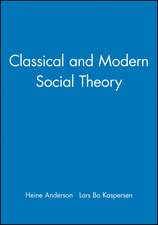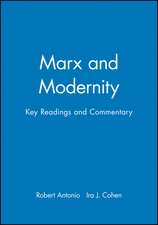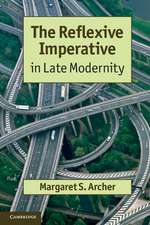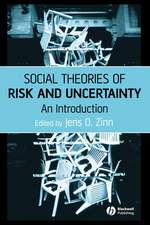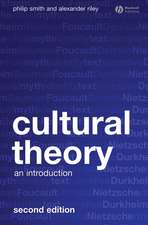Economic Sociology: State, Market, and Society in Modern Capitalism
Autor C Trigiliaen Limba Engleză Paperback – 8 mai 2002
Economic Sociology begins with the classic writings by Simmel, Sombart, Weber, Durkheim, Veblen, Polanyi, and Schempeter, and highlights how these writings contributed to developing a theory of economic action as socially oriented action. The book then examines the social consequences of capitalism up to the present, including discussions about modernization and the welfare state.
The volume is an historical introduction that illustrates how economic sociology has contributed to the understanding of the origins and characteristics of capitalism in the West, liberal capitalism, and the more highly regulated and organized capitalism which has come into being since the thirties.
Economic Sociology presents the methodology and research themes accessibly, and each part is organized and presented so that it may be read as a single unit, according to students' specific needs. This is an excellent introduction to the field.
Preț: 470.98 lei
Preț vechi: 511.93 lei
-8% Nou
90.12€ • 94.09$ • 74.59£
Carte tipărită la comandă
Livrare economică 05-19 aprilie
Specificații
ISBN-10: 0631225366
Pagini: 298
Dimensiuni: 169 x 244 x 17 mm
Greutate: 0.54 kg
Editura: Wiley
Locul publicării:Chichester, United Kingdom
